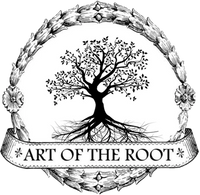Voodoo & Hoodoo Fetish Worship, The Darker Truth of the Word "Fetish"
The term fetish refers to any inanimate object that is believed to possess magical powers. A fetish really can be anything: a lucky coin, an old wristwatch or even a piece of wood. When it comes to Hoodoo and Voodoo and even within the Native American traditions, fetishes tend to come in the form of spirit dolls, medicine bags, stones, mojo bags, pipes, spirit boxes, talismans and charms. Even a working altar can be a fetish in its own right. Enter any legitimate Botanica, and you will see fetishes all over. Let's face it. We love them. The term "fetish" has been assimilated into many cultures and languages.
But the term “Fetish” didn’t have such positive connotations not too long ago. Fetish comes from the Portuguese word “Feitico” and was once used by sailors to describe magic or witchcraft within their own culture. It eventually merged into the word fetisso which could describe anything that had worth or value to it. When the Portuguese traders arrived on the Guinea Coast, they used this term loosely. It wasn’t until the 18th century when Charles de Brosses used this term specifically for his book, "Due culte des diex feitches (Corpus des oeuvres de philosophie en langue francaise)" which was his anthropological undertaking of the African culture. The term “fetish” refers to his observations of African spirit worship through the use of inanimate objects such as rocks, medicine bags, dirt mounds, sticks, etc. Anthropological studies flourished in the 18th century. It was, after all, a period of Enlightment. Right? Many scholarly books were written in an attempt to describe the behavior and belief systems of primitive cultures. Unfortunately, religion had more of an impact on science than unbiased observation.
The Portuguese had been in Africa long before the first exportation of slaves to the Americas. Missionaries had been there for centuries and they were diligently attempting to convert as many as they could to Catholicism. This is also the case for Cuba, but will get to that in a different post. By the time, Charles de Brosses made it to Africa, slave exportation was already in effect. Anthropological studies flourished in the 18th century. It was, after all, a period of enlightment. Right?
But there was also something far more sinister behind Charles de Brosses intentions, even though I am sure he didn’t see it this way. The concept of idol worship was considered a feature of less advanced cultures and societies. In fact, it was believed to be a practice of primitive minds. Fetish worship actually was deemed the most primeval of all types of worship and held less regard than even idol worship (images carved into the likeness of Gods). It would behoove Charles de Brosses and the many others that followed to establish the Africans as primitive and savage. Why? It justified the economic and political substructure of the slave trade.
All pagan cultures, ancient and modern were believed to be less developed and certainly more primitive. The same can be said for the missionaries who arrived in the Americas in the 17th and 18th centuries. The Native Americans were seen as primitive people, their religion, although from an anthropological stand point was quite interesting, held no merit. I believe one Jesuit Missionary referred to medicine bags as “Devil Bags” Even ancient cultures such as the Greeks, Egyptians, Assyrians and the like were considered primitive. Only monotheistic cultures held high regard. Why? According to Charles de Brasso and his followers, monotheisms was the product of a well-developed mind. All other cultures were inferior. Period. Thus was the justification for many acts of inhumanity and cruelty.
Consequently, I am never really fond of using the term “fetish” to describe any magical object. Particularly with those that possess a spirit. I suggest naming them. Do you have a favorite mojo bag or spirit box? Give it a name. Tell it your inner most thoughts. Pray to it, sing to it or chant to it. Build a relationship with it. Thank it and take care of it. Place it in a sacred space, feed it, and love it. Honor it and believe in it. In return, it will believe in you.





Leave a comment